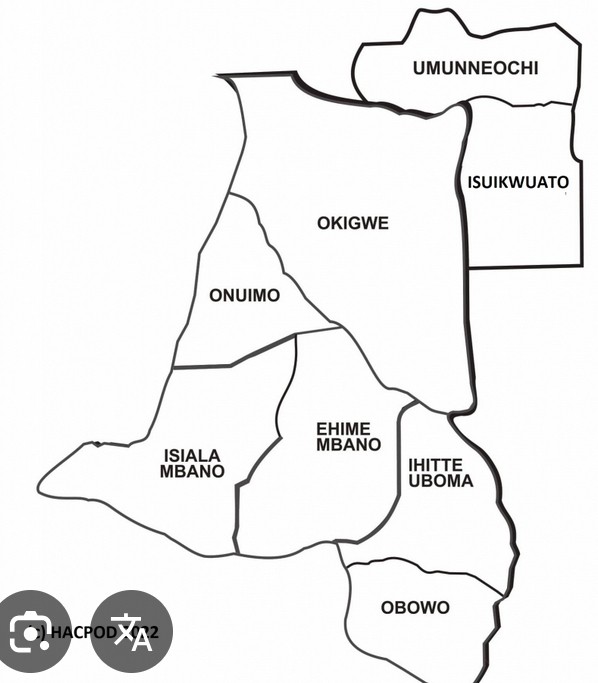
By Publisher
Kindly share: you
Once upon a recent Tuesday in the Federal Republic of Nigeria, President Bola Ahmed Tinubu stood under the blazing sun, flanked by ministers, sycophants, security details, and cameramen with dusty tripods. He was there for a momentous occasion: The grand commissioning of 30 kilometres of road; the Lagos-Calabar Coastal Highway, a project that has been advertised with the fanfare of a moon landing and the sincerity of a Ponzi scheme.
This wasn’t just any 30 kilometres. Oh no. This was the first visible stretch of a 700-kilometre highway meant to connect Lagos to Calabar, a distance so long it could have been mistaken for an expressway to redemption. The kind of project that eats budgets, swallows communities, and births propaganda.
And yet, in the most tragicomic twist imaginable, only 4.2% of the highway was ready. But that didn’t stop the cutting of ribbons. Nigeria doesn’t wait for substance when spectacle is available. After all, even in our leanest years, we have never lacked for ceremonies. We might not be able to feed our people, but we will always have scissors for ribbon-cutting.
The lead-up to this commissioning had all the characteristics of a blockbuster premiere. Press conferences, animated renderings, politicians posing like real estate agents, and ministers describing the highway as the infrastructural Second Coming. One could be forgiven for expecting to see a golden highway paved with opportunity, flying cars zooming along it, and grateful citizens weeping at its majesty.
Instead, what we got was 30 kilometres of concrete, paved over freshly bulldozed memories and crushed small businesses, most notably, the Landmark Resort, one of the few remaining functional entertainment and tourism centres in Lagos. That place used to host weddings, concerts, tech expos, and the occasional “detty December” celebration. Now it exists only in memory and drone footage.
To sacrifice such an economic hub for a road that, so far, leads mostly to photo ops, is the infrastructural equivalent of burning your house to boil water.
And here’s where the plot thickens, or rather, sags like a poorly maintained highway shoulder. Who advised President Tinubu to show up to this half-baked commissioning?
Was this sabotage from within? Did someone in the Presidential Planning Committee confuse “coastal road” with “coastal roast”? Because what played out looked less like a statesman inaugurating a legacy project and more like a poorly planned skit from an old episode of Nigerian Bloopers & Blunders.
You can almost picture the exchange behind closed doors:
Aide 1: “Your Excellency, we have a road.”
Tinubu: “The Lagos-Calabar one?”
Aide 2: “Well… about 30 km of it.”
Tinubu: “And the rest?”
Aide 1: “Still under divine consideration, sir. But the ribbon is ready.”
One wonders if this was an elaborate set-up, designed not by political opponents but by allies too incompetent to realise that sending a President to commission an unfinished fraction of a mega-project makes him look like the unwitting star of a national sitcom.
And worse, they probably believed they were doing him a favour.
Let us speak plainly. Nigeria is not short of roads, though riddled with potholes enough to swallow fully loaded trucks. What we are short of is food. Jobs. Affordable fuel. Stable electricity. Safety. Sanity. Yet somehow, this government found the urgency and funding for a project so expensive and disruptive that it seems designed more for vanity than utility. Why not fix the existing roads if they had caught a road bug?
This is the infrastructural equivalent of buying a Bugatti while your children are barefoot and hungry.
We live in a country where over 70 million people live below the poverty line, where inflation eats salaries before they reach bank accounts, and where the price of garri now competes with foreign rice. The average Nigerian is not asking for a six-lane superhighway to Calabar. They are asking for food, electricity, and the ability to sleep at night without hearing gunshots or generators.
Yet here we are, celebrating 30 kilometres of a billion-dollar road, as if concrete can be converted into calories.
Imagine the irony: Whole families displaced, thriving businesses razed, livelihoods erased; all for a road they may never drive on. Tinubu stood there smiling for the cameras, unknowingly posing next to the physical manifestation of misplaced priorities.
Let’s return to the case of Landmark. It was a landmark of loss. If Nigeria had a functioning tourism industry, Landmark would have been one of its poster children. It was a rare private-sector success story, employing thousands, generating revenue, and attracting both locals and foreigners. In a city like Lagos, overcrowded, overstressed, and underserved, Landmark offered a glimpse of what leisure could look like if the government ever got its act together.
So naturally, the government destroyed it.
To be fair, some people defend this decision with the logic of “sacrifices must be made for development.” But what development, whose development? And who decides what is worth sacrificing? Because, from where we stand, the government seems more comfortable bulldozing successful businesses than creating new ones.
And the highway? It could easily have been rerouted, after all, roads are designed around terrain, not over dreams. But alas, rerouting costs time and empathy. Bulldozing only requires a caterpillar and a press release.
In the aftermath, the only thing Landmark left behind was its name, which, ironically, is what the president thought he was building.
Every President wants to leave a legacy. But the problem with legacy projects is that they are often more concerned with the grandeur of scale than the immediacy of impact. What Nigeria needs is not a 700-kilometre vanity project but 7,000 localised solutions: Food programmes, working hospitals, functioning schools, and small roads that connect actual communities.
This coastal highway might be complete in a decade or two, assuming Nigeria still exists as a functional state and not a Wikipedia entry titled “Former African Nation.”
Until then, we will have a beautiful strip of 30 kilometres, standing awkwardly like a tuxedo-clad man at a village wedding, overdressed, misplaced, and unsure why he’s there.
The president’s aides will continue to defend this project with charts, projections, and photos of bridges that appear to be stock images. But Nigerians know better. We’ve seen this movie before. It usually ends with someone absconding with the budget and a senator buying a mansion in Dubai.
This is a country of spectacle over substance. In Nigeria, leadership is often more concerned with optics than outcomes. This commissioning fits that tradition perfectly: It looks good on the evening news, gives the illusion of motion, and distracts from the sound of rumbling stomachs.
But the real tragedy isn’t the road. It’s the desperation behind the charade. A government so eager to prove that something, anything, is working, that it celebrates 30 kilometres as if it’s 700. As if symbolic progress is a substitute for real change.
We, the governed, are expected to clap. To applaud this small stretch of tar while our lives unravel like a frayed electrical wire. To believe in a dream that begins with displacement and ends with debt.
There’s an old fable called “The Emperor’s New Clothes,” where the Emperor is fooled into parading naked while his courtiers praise his invisible garments. In this version, Tinubu is the Emperor, the 30 kilometres is his outfit, and his advisers are the tailors who convinced him he was dressed in glory.
He is not.
He was set up.
Not by enemies, but by those who claimed to have his back. By overzealous ministers, by contractors chasing the next payout, by media aides writing press releases for projects that barely exist.
They handed him a pair of scissors and a dream. He cut the ribbon, and in doing so, also cut into whatever credibility remained in the hearts of the weary electorate.
We watched, some in pity, others in anger. A few laughed, not because it was funny, but because laughter is the only currency left when hope is bankrupt.
In the end, this saga will be remembered not as a moment of national pride but as a metaphor for Nigerian governance: Bloated ambition, poor timing, and zero awareness.
The 30 kilometres will be maintained, for now. Tourists (if any) may drive on it. Instagram influencers may snap pictures. But for the millions living in hunger, insecurity, and blackout, this road is just another insult disguised as infrastructure.
They promised us a highway to prosperity. Instead, we got a U-turn into absurdity.
And if President Tinubu wants a true legacy, he might consider building something else, not a road to Calabar, but a path to directly impacting the lives of citizens.
Until then, let him have his ribbon. We, the people, will keep our receipts.





